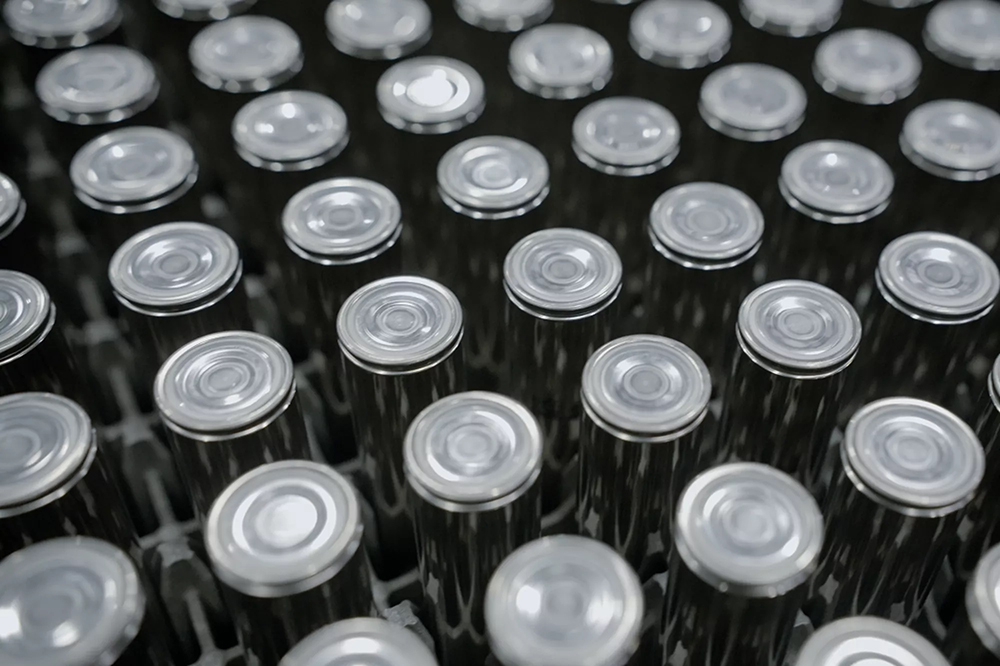JB Straubel’s Redwood Materials will supply remanufactured battery cathode material to Panasonic, beginning in 2025, for a new factory the Japanese battery-maker is currently building in Kansas. Panasonic’s $4-billion factory, which is said to be larger than Tesla’s Nevada Gigafactory, is expected to begin production of 2170-format cylindrical cells by March 2025.
Spurred by the Inflation Reduction Act, battery-makers are scrambling to develop North American sources of key battery materials, including nickel, cobalt and lithium. Part of the demand is expected to be met by recycling, which could reduce the need for new mines.
“The IRA just accelerated this entire transition” of the battery supply chain, Redwood Materials Chief Executive JB Straubel told Reuters.
Redwood Materials already has a partnership with Panasonic. Redwood recycles scrap from Panasonic’s battery production line at Tesla’s Gigafactory, and supplies materials such as cobalt, nickel and lithium back to Panasonic. Soon, Redwood will also begin supplying Panasonic with copper foil produced from recycled materials.
Redwood also recycles batteries from consumer electronics. Annual volume has reached 10 GWh of battery material, a figure that Straubel says is “increasing daily.”
Initially, the cathode materials supplied to Panasonic at the Kansas factory will contain about 30% recycled lithium and nickel and 100% recycled cobalt, Redwood founder and CEO JB Straubel told TechCrunch. That percentage will increase as more used batteries enter the recycling chain.
Redwood has major expansion plans—the company is investing “several billion dollars” in its own new factory, where it aims to be producing 100 GWh worth of cathode material per year—enough for 1 million EVs—by 2025.
Straubel believes that recycling will someday provide almost all the materials needed to produce batteries, bringing the percentage of virgin material required down almost to zero. “It will take a while for the industry as a whole to have enough material in circulation to do that,” he told TechCrunch. “We’re a long way away from that for every element. But it can happen much sooner with things like cobalt.”
Source: Reuters, TechCrunch


lasuna canada – buy cheap himcolin generic himcolin
besivance eye drops – besifloxacin medication order sildamax
neurontin 600mg drug – azulfidine order online buy generic sulfasalazine
how to buy probalan – carbamazepine ca buy carbamazepine
celebrex tablet – celebrex online buy indomethacin 75mg for sale
mebeverine 135mg over the counter – buy colospa 135 mg for sale order cilostazol
order diclofenac generic – buy generic aspirin 75 mg aspirin 75mg without prescription
order rumalaya generic – how to buy rumalaya elavil 50mg over the counter
order pyridostigmine 60mg sale – buy sumatriptan 25mg online cheap buy imuran 50mg sale
buy generic diclofenac for sale – nimotop brand buy nimotop generic
buy baclofen without prescription – buy feldene 20mg without prescription order piroxicam 20mg for sale
order mobic generic – maxalt uk purchase toradol pill
periactin pills – buy tizanidine paypal order tizanidine 2mg online
artane over the counter – order generic artane where can i purchase emulgel
buy cheap generic omnicef – buy generic cefdinir cleocin brand
absorica pills – order accutane 40mg for sale deltasone 20mg sale
order deltasone 10mg – zovirax usa permethrin tubes
where to buy acticin without a prescription – cheap acticin retin gel canada
betnovate 20 gm without prescription – monobenzone cost buy generic benoquin over the counter
purchase metronidazole for sale – buy cheap cenforce cenforce price
buy augmentin cheap – levothyroxine cheap cheap synthroid
buy clindamycin cheap – order indomethacin 75mg generic indocin without prescription
cost cozaar 25mg – cephalexin oral buy keflex generic
eurax online – mupirocin medication aczone online order
buy provigil generic – where to buy promethazine without a prescription cost melatonin 3mg
buy zyban pills for sale – xenical 120mg canada buy shuddha guggulu for sale
prometrium order online – ponstel online order purchase fertomid without prescription
purchase xeloda pills – danocrine without prescription danazol 100mg without prescription
order alendronate 35mg online cheap – pilex pills medroxyprogesterone 10mg us
buy dostinex 0.5mg pills – dostinex 0.25mg us alesse cost
order estrace 2mg online cheap – estradiol cheap order anastrozole 1 mg online cheap
гѓ—гѓ¬гѓ‰гѓ‹гѓійЂљиІ© – г‚ёг‚№гѓгѓћгѓѓг‚ЇйЊ 500mg еј·гЃ• г‚ўг‚ёг‚№гѓгѓћг‚¤г‚·гѓі гЃ®иіје…Ґ